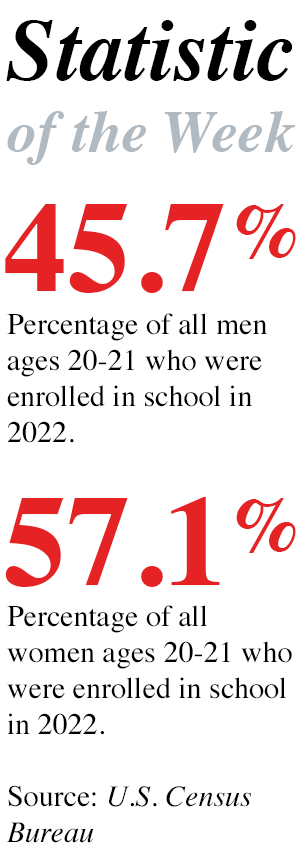Study Finds Link Between Number of Women Students and Doctoral Completion Rates
Posted on Sep 26, 2018 | Comments 0
 A new study from Ohio State University has found that the fewer women who enter a doctoral program at the same time, the less likely any one of them will graduate within six years. When there is only one woman in a new doctoral class, she is 12 percentage points less likely to graduate within six years than her male classmates. However, that gap closes by more than 2 percentage points for every additional 10 percent of women in a new class.
A new study from Ohio State University has found that the fewer women who enter a doctoral program at the same time, the less likely any one of them will graduate within six years. When there is only one woman in a new doctoral class, she is 12 percentage points less likely to graduate within six years than her male classmates. However, that gap closes by more than 2 percentage points for every additional 10 percent of women in a new class.
The researchers examined all 2,541 students who were enrolled in 33 graduate programs at six Ohio public universities between 2005 and 2016. The average class size was about 17 students, 38 percent being women. The data showed that women in programs typically dominated by men were about 7 percent less likely to graduate than their male peers. That gap was nonexistent in programs with more women than men. Additionally, women who dropped out of male-dominated programs usually did it in their first year.
 Results from the study showed that funding and grade point averages had little to no difference between genders. The researchers concluded that the graduation gap must therefore come from the academic climate that women experience.
Results from the study showed that funding and grade point averages had little to no difference between genders. The researchers concluded that the graduation gap must therefore come from the academic climate that women experience.
Lead author and postdoctoral research fellow Valerie Bostwick stated, “It may be hard to feel like you belong when you don’t see other women around you. There may be subtle discrimination. We don’t know. But it highlights the fact that women need support, particularly if they are the only ones entering a doctoral class. They need to know about resources that could help them, particularly in that first key year.”
Dr. Bostwick holds a bachelor’s degree in economics and political economy from Princeton University and a master’s degree and Ph.D. both in economics from the University of California, Santa Barbara.
The study, “Nevertheless She Persisted? Gender Peer Effects in Doctoral STEM Programs,” was published by the National Bureau of Economic Research. It may be accessed here.
Filed Under: Research/Study








